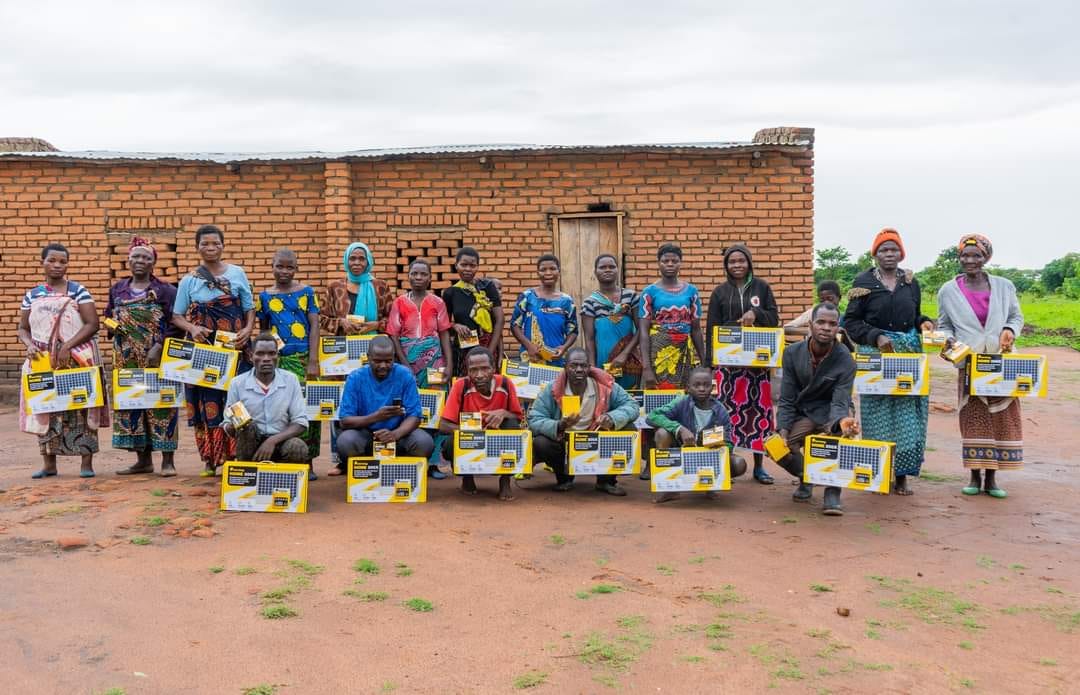Solar Energy Initiative Improves Education and Lives in Madisi
The Solar Energy for Quality Education initiative provides solar lights to improve education and lives in Madisi, Malawi.
MADISI, MALAWI — The Solar Energy for Quality Education (SVQE) initiative has brought electricity to over 2,000 households in Madisi, Dowa, benefiting more than 10,000 people, writes Mustafa Makumba.
The initiative was motivated by the fact that only 14 percent of Malawians have access to electricity, with about 4 percent of rural settlers having a share, according to the 2021 World Bank report.
The divide has affected the performance of children in many rural communities, as their productive parts of the school day end at sunset.
The Solar Light Project, spearheaded by a local-based organisation called Opulence Malawi, strives to close the divide by improving the quality of education in rural areas.
The project achieves this by enabling learners and teachers to extend their academic activities into some parts of the night.
Executive Director for Opulence Malawi, Hugo Ngwira, stated that the initiative aims to combat poverty among Malawians by providing them with a conducive environment where they can access quality education.
"We have to enhance education among rural settlers if we are to overcome poverty in our country," says Ngwira.
"The academic performance has improved among our beneficiaries since they started using the solar kits we provided to them."
The solar light project has proven to be highly beneficial to people living in and around Madisi. The community has been transformed with almost every house having access to lights.
Some of the villagers told this publication that they no longer feel disconnected from city dwellers as the development has bridged the gap between the two groups.
Guzani Tambala, a beneficiary of the initiative is a success story. His two children that are in primary school are performing highly thanks to the project.
"When my children wanted to study, they would use the computer at night, and they required batteries. This affected their performance, as batteries could require money to replace them whenever they ran out. The solar lights are helping us immensely," he said.
Lukas Nkhuyu, a father of three primary school-going children, has expressed his heartfelt gratitude towards the initiative.
He shares similar sentiments with Tambala, as his children's academic performance has tremendously improved.
"My children struggled so much at school, but that's now history as their performance has improved since they have ample time to study at night," he said.
Despite the project helping children academically, it has also helped them financially.
The money that they used to buy batteries for their electrical devices is now being channelled to other important things.
51-year-old Bernadetta Kapalanga has commended the solar kits, saying they are helping her save money as she could not afford to buy them from the shops.
"Torches and batteries are so expensive nowadays, so this initiative will spur academic performance in our children," she said.
In an effort to provide sustainable energy solutions to communities, Opulence Malawi completed a pilot solar project in Katumbu Village in Madisi, T/A Chakhaza, Dowa.
The project aimed to test the effectiveness of four different types of solar systems in providing reliable electricity to the village.
After three months of testing, the Sunking 160x solar kit was found to be the most effective due to its brightness (lumens), providing ample light for the community.
However, the Sunking company had recently released a new model, the 200x Greenlight/Sunking, which offered even more power than the 160x. As a result, the organization decided to opt for the newer model.
The 200x Greenlight/Sunking boasts a 15-watt solar panel, three hanging lamps (tube lights) with 600 lumens of brightness each, one USB port for phone charging, and an FM radio device with an MP3 player.
This solar system can last up to 30 hours when fully charged on level one, making it ideal for providing adequate study time for children.
The organization hopes that the use of sustainable energy solutions such as the 200x Greenlight/Sunking will help to improve the quality of education in rural communities in Malawi.
The SVQE initiative is a shining example of how solar energy can be used to improve the lives of people in developing countries.
The initiative has the potential to help break the cycle of poverty and give children in Malawi the opportunity to reach their full potential.



